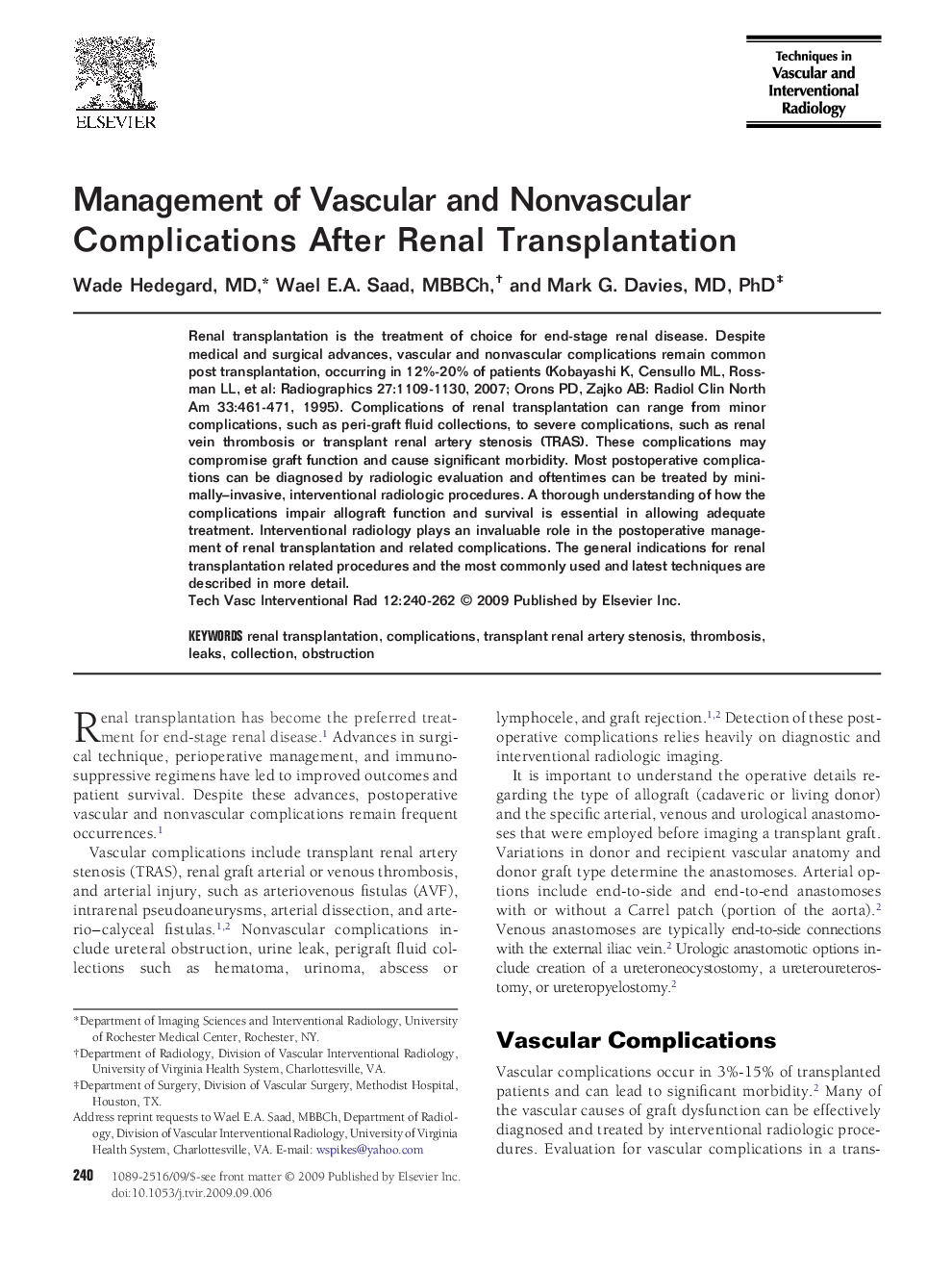| Article ID | Journal | Published Year | Pages | File Type |
|---|---|---|---|---|
| 4251907 | Techniques in Vascular and Interventional Radiology | 2009 | 23 Pages |
Renal transplantation is the treatment of choice for end-stage renal disease. Despite medical and surgical advances, vascular and nonvascular complications remain common post transplantation, occurring in 12%-20% of patients (Kobayashi K, Censullo ML, Rossman LL, et al: Radiographics 27:1109-1130, 2007; Orons PD, Zajko AB: Radiol Clin North Am 33:461-471, 1995). Complications of renal transplantation can range from minor complications, such as peri-graft fluid collections, to severe complications, such as renal vein thrombosis or transplant renal artery stenosis (TRAS). These complications may compromise graft function and cause significant morbidity. Most postoperative complications can be diagnosed by radiologic evaluation and oftentimes can be treated by minimally–invasive, interventional radiologic procedures. A thorough understanding of how the complications impair allograft function and survival is essential in allowing adequate treatment. Interventional radiology plays an invaluable role in the postoperative management of renal transplantation and related complications. The general indications for renal transplantation related procedures and the most commonly used and latest techniques are described in more detail.
